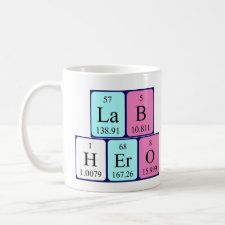
Authors: Liu YH, Yang QX, Chen XT, Song YM, Wu QH, Yang YY, He LP
Article Title: Sensitive analysis of trace macrolide antibiotics in complex food samples by ambient mass spectrometry with molecularly imprinted polymer-coated wooden tips.
Publication date: 2019
Journal: Talanta
Volume: 204
Page numbers: 238-247.
DOI: 10.1016/j.talanta.2019.05.102
Alternative URL: https://www.sciencedirect.com/science/article/pii/S003991401930596X
Abstract: In this article, an ambient mass spectrometric method with molecularly imprinted polymer (MIP)-coated wooden tips was developed for sensitive analysis of trace macrolide antibiotics in complex food samples. A novel solid-phase microextraction (SPME) probe was prepared, via the modification of a layer MIP coating (with roxithromycin as template molecule) on the surface of wooden tips. The obtained MIP-coated wooden-tip SPME probe can be applied directly to enrich trace macrolide antibiotics from complex food samples, with enrichment factors of 244-1604, 72-370, and 12-82 folds for analysis of five investigated macrolide antibiotics in drinking water, honey, and milk samples, respectively. After extraction, a high voltage and some spray solvent were applied on the loaded SPME probe to desorb and ionize analytes enriched on the probe surface for electrospray ionization mass spectrometric (ESI-MS) analysis under ambient and open-air conditions. The method showed good linearity, with correlation coefficient values (r2) no less than 0.9904, and the calibration function was verified via Mandel's fitting test (p > 0.063). The limits of detection were in the range of 0.003-0.05, 1.1-5.1, and 1.9-15.8 ng/g for analysis of drinking water, honey, and milk samples, respectively. Recoveries of the five targeted macrolide antibiotics in honey and milk samples ranged from 73.4% to 98.1%, with the standard deviations no higher than 8.6%. As a result, MIP-coated wooden-tip ESI-MS method could be feasibly used as a sensitive method for determination of trace macrolide antibiotics in complex food samples
Template and target information: roxithromycin, macrolide antibiotics
Author keywords: Macrolide antibiotics, molecularly imprinted polymer, solid-phase microextraction, Ambient mass spectrometry



Join the Society for Molecular Imprinting

New items RSS feed
Sign-up for e-mail updates:
Choose between receiving an occasional newsletter or more frequent e-mail alerts.
Click here to go to the sign-up page.
Is your name elemental or peptidic? Enter your name and find out by clicking either of the buttons below!
Other products you may like:
 MIPdatabase
MIPdatabase









